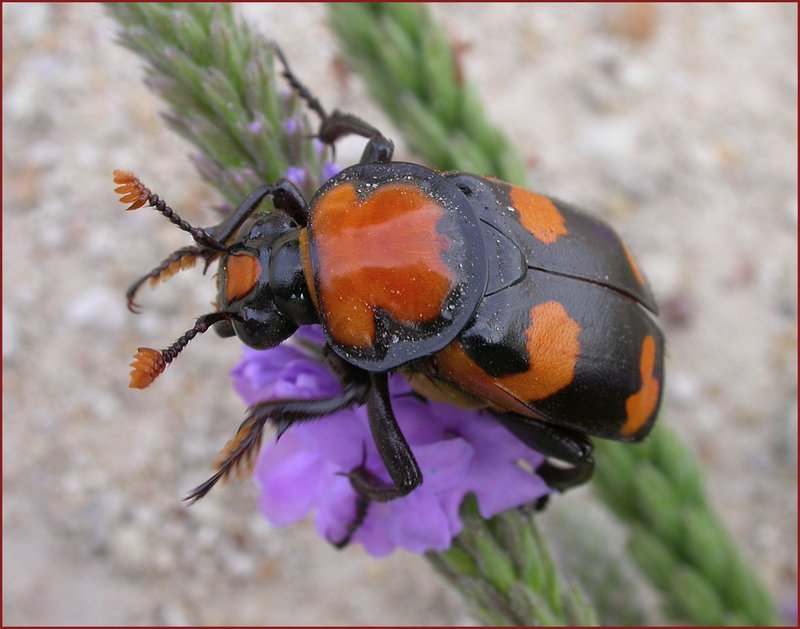For Immediate Release, September 4, 2020
|
Contact: |
Noah Greenwald, (503) 484-7495, ngreenwald@biologicaldiversity.org |
American Burying Beetle Loses Endangered Status Despite Major Threats From Oil Development, Climate Change
TULSA, Okla.— The U.S. Fish and Wildlife Service has announced the downlisting of the American burying beetle from endangered to threatened despite the absence of the beetle from most of its range, ongoing habitat destruction from the oil and gas industry, and new information that climate change is decimating the species in the southern Plains.
The downlisting rule, released Sept. 3, also outlines exclusions that allow oil and gas companies to pursue developments within the beetle’s fragile habitat in Oklahoma.
“Far from recovering, American burying beetles are spiraling toward extinction as their habitat is sacrificed to oil and gas development that’s also making our world too hot for the species to survive,” said Noah Greenwald, endangered species director at the Center for Biological Diversity. “The Trump administration’s downlisting is an undeserved gift to the oil and gas industry. It greenlights destruction of the beetle’s habitat and the emission of even more of the pollution that’s fueling the climate emergency threatening the beetle and people alike.”
With its striking orange-and-black carapace, the American burying beetle once occurred in 35 states across the eastern half of the United States and parts of Canada. But its numbers have declined by more than 90%. It now lives in a small number of isolated populations in states on the fringes of its range, including Oklahoma, Nebraska and Rhode Island.
These highly imperiled beetles were protected as endangered in 1989, but the oil and gas industry has fought for years to end that protection. A 2015 petition from the Independent Petroleum Association of America, which sought to eliminate hurdles to oil and gas development in Oklahoma, prompted a review of the beetle’s status.
The Service’s rule acknowledges that the beetle has not met criteria for downlisting from the species’ 1991 recovery plan, which called for three populations of at least 500 individuals in each of four regions. In a flabbergasting example of government doublespeak, the Service now states that because new science shows 500 individuals not to be enough for population stability, this criterion no longer applies. The rule also acknowledges that climate change is likely to make the southern Plains inhospitable to the beetle, but somehow comes to the counterintuitive conclusion that it is less endangered.
“We frequently support and celebrate the recovery of endangered species,” said Greenwald. “But there’s nothing to celebrate here. We’ll challenge this nonsensical decision to strip the beetle of protection.”

The Center for Biological Diversity is a national, nonprofit conservation organization with more than 1.7 million members and online activists dedicated to the protection of endangered species and wild places.

